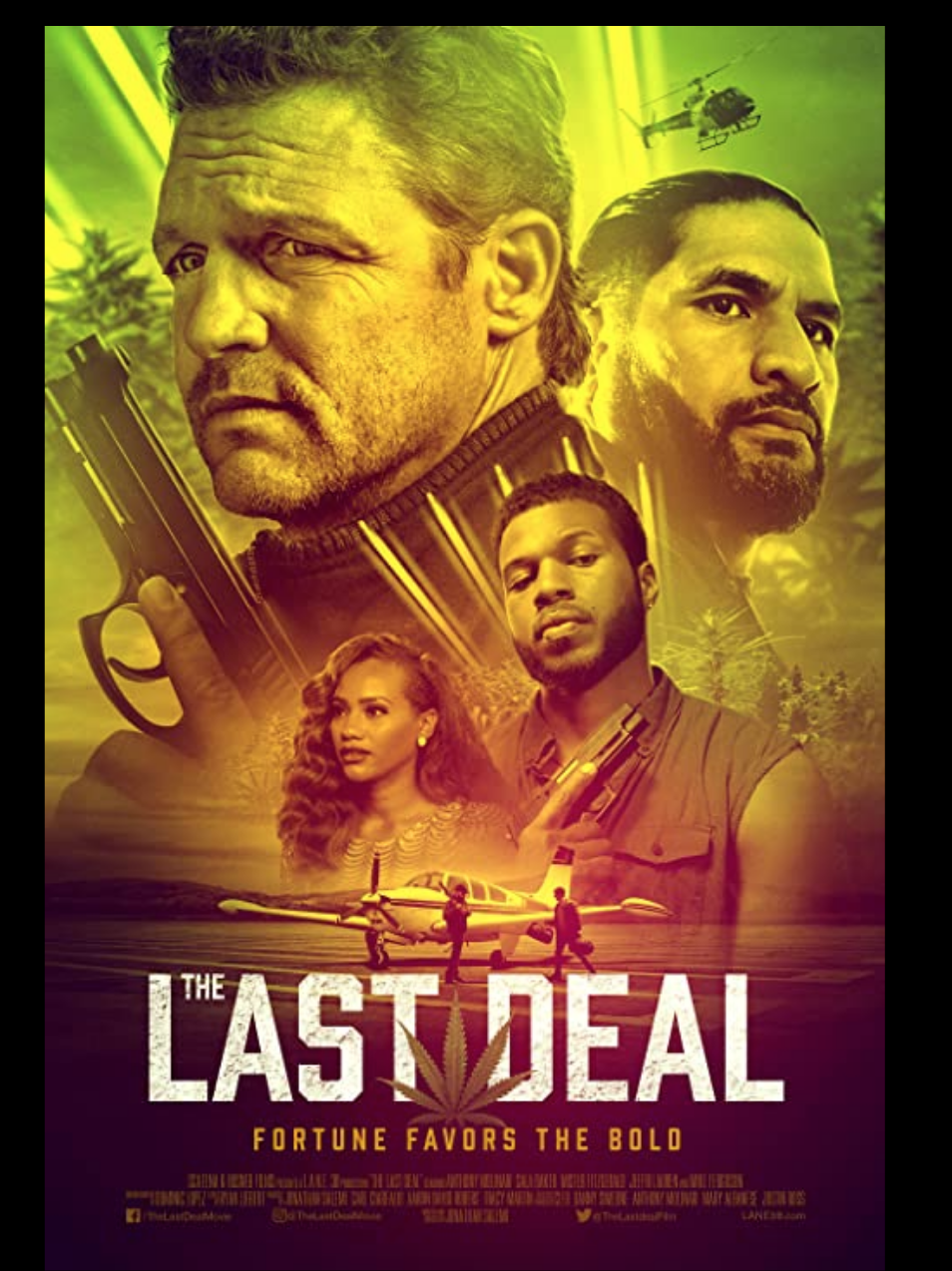
It is becoming the norm to be lured into a film, whose premise is aligned with the unprecedented times in which we currently live. We root our preconceived opinion of the film on how star-studded, unique, long, short or “woke” it is. Many of us spectate the film to see if it meets every one of our standards and does justice to every single aspect of the subject matter. Some films for the most part succeed, while others, like Jonthan Salemi’s The Last Deal, make the attempt, but ultimately resort to familiar territory.
The film follows Vincent (Anthony Molinary), a black-market marijuana dealer, on his final run in the game, during a time when cannabis has become legalized in the United States. At the start, we learn about how Vincent got involved in dealing and how he has built a life, leading up to the point in time in which the film takes place. The decriminalization of the substance initiates a turning of the tides and begins to demolish the need for the underground line of work in which it is sold. Before Vincent walks away to pursue a clean life, he decides that he wants to go out with a bang, and exchange marijuana one last time. Unfortunately, the unnamed gang that he works with shows him two faces and things take a southward turn, putting himself and the people that he loves in danger. Vincent’s mission has now shifted from racking in one last check to hunting down his deceitful suppliers.
What I liked about the film was its promises. As I mentioned before, the premise alone is enticing. It reflects an issue of the world today, and asks the question, “How would someone respond if this craft of theirs was going out of business?” The film has a solid introduction, using flashback clips, 80’s-style music and a Goodfellas-esque narration from our main character, Vincent, to paint him as a charismatic, solid, and relatable character. We are introduced to Vincent’s business partner and friend, Bobby (Mister Fitzgerald), learning of his backstory and motives as well. We also meet Vincent’s love interest, Tabitha (Jeffri Lauren). These are the people nearest and dearest to Vincent’s heart, and as the film takes its turns, they become his motivation to keep fighting and pressing forward. There is one scene in the middle of the film, that I considered to be a solid cinematic technique to express character emotion. This scene juxtaposes flashback clips from a tragedy and clips from a promise to convey how our main character is processing everything that is going on around him. This scene grounds Vincent and makes his next actions believable.
What brings the film down for me is its overall plot. Outside of the film’s unique premise, introduction and one solid scene in the middle, the rest of it was quite typical of a film about drug dealers. The answer to the question that I posed at the beginning is that the price of marijuana on the dying black market will increase, which will help Vincent to obtain more money to help him support those that he loves. The character motivation is understandable, but the answer to the interesting premise is one that is quite familiar. The film very briefly explores some of the other economic aspects of this legalization, but the bulk of the film consists of the type of manhunt that we have seen in other films many times before. The story is very formulaic and predictable. There is a proposition, a pursuit, a scam, some capturing, some chasing, some gun shooting, some knife fighting, retribution, and rewards. This is a film that goes through the motions with its plot and lacks the fresh perspective that we were promised in the beginning. Overall, I thought that The Last Deal was an okay film. Instead of buying into this deal, personally I would wait for it on streaming.
Grade: C-


